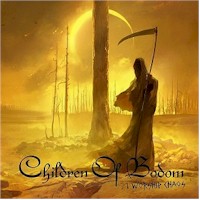Band
Revocation
Title
Great Is Our Sin
Type
LP/EP
Company
Metal Blade
YOR
2016
Style
Thrash
Popular Reviews
More of the same extreme metal excellence, this time with some prog touches

Since forming roughly a decade ago, Massachusetts' own Revocation have built an ever-growing reputation for their fierce and well-executed mix of thrash and technical death metal, with frontman/guitarist David Davidson even having a long-running lesson column in Guitar World magazine. And yet, as the band delivers yet another solid album, it is becoming increasingly difficult to come up with anything to say about the band's music that hasn't already been said. And in a way, the band faces a similar dilemma. Extreme metal of this sort has a few stylistic attributes that a band pretty much has to keep in place in order to truly be a part of the (sub)genre. Harsh vocals are pretty much a given, as are speedy, aggressive riffs and a similar barrage of double bass-intensive drumming (the latter handled here by former Three Inches of Blood skinsman Ash Pearson, in his first recording with the band). Really, it seems that there is only so much variety that can be thrown into the mix.
On Great Is Our Sin, however, Revocation make attempts to do just that, and succeed just about as much as is possible without a substantial redefining of their sound. The change at hand involves two seemingly incongruous developments. Overall, the album's material manages to be more concise and simultaneously more infused with progressive elements than their last outing, 2014's Deathless. At the album's opening, nothing seems drastically different from the band's recent material. Starting with the third cut, "Monolithic Ignorance," however, things get increasingly interesting, with intricate riffs and the aforementioned progressive touches, which are most evident on "Crumbling Impirium" (my favorite track on the album), where the band combines complex rhythms and riffs with unconventional, dissonant chording more than slightly reminiscent of late '80's Voivod. (Not surprising, as I actually spotted Davidson in the audience when Voivod came through Providence on the tour for their Post Society EP earlier this year.) As detailed in a recent lesson for Guitar World, Davidson sometimes spices up riffs with complex, jazz-derived chord voicings, as heard on "Communion." And of course, he and co-guitarist Dan Gargiulo dish out plenty of impressive, articulate and complex solos. Album closer "Cleaving Giants Of Ice" offers a slight but welcome change of pace, with a moody, clean-toned guitar intro, and later on, vocals and chording that include hints of more conventional, accessible melody than the band usually bothers with. Perhaps this hints at a direction the band could explore further, should they ever tire of the thrashier fare that has been such a major part of their sound so far.
My one complaint about Great Is Our Sin would be the production. On a surface level, it seems more than competently handled as usual. Listening through headphones, however, reveals an ever-so-slight muddiness, almost as if there is a bit of high end simply missing that was intended to be there. Also, things sound a tad over-compressed to my ears. (The Dynamic Range Database website verifies my suspicion that overly loud and/ or compressed mastering has been an issue on this and several of the band's previously releases, as it has been for plenty of other metal releases in recent years.)
On a purely musical level, however, it is hard to fault this album, beyond that fact that much of what is done here musically has already been done on the band's previous releases. Come to think of it, the same could be said for much of the album's lyrical content, which largely revolves around corruption, greed and their catastrophic potential. This is one area in which Great Is Our Sin could be said to be a slight step down in quality in my opinion, as I feel that some of these ideas have been articulated better on previous Revocation albums. On a purely musical level, however, I have to give the band a lot of credit for their sheer technical ability, and for still managing to create an an album of material that is often fairly fresh sounding in a genre that can get very repetitive very easily. I sometimes wonder how much longer they can keep it up without repeating themselves, but for now, it appears that all is well in the Revocation camp, creatively. In fact, perhaps the slight tweaks made to their sound here point to a new direction that could be taken further on future releases. The album ends with a cover of Slayer's "Altar Of Sacrifice," with remains pretty faithful to the original, aside from Davidson's death metal-infused vocals.
 (Independent)
(Independent) (Scarlet)
(Scarlet)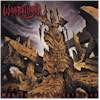 (Century Media)
(Century Media) (Rocksector)
(Rocksector) (Century Media)
(Century Media)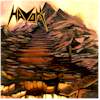 (Candlelight)
(Candlelight)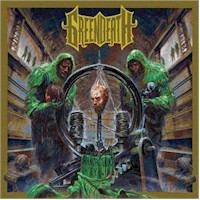 (Independent)
(Independent)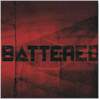 (Tabu)
(Tabu) (Metal Blade)
(Metal Blade) (Nuclear Blast)
(Nuclear Blast) (Mighty Music)
(Mighty Music)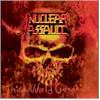 (SPV/Steamhammer)
(SPV/Steamhammer) (Scarlet)
(Scarlet) (Morbid Moon)
(Morbid Moon) (Metal Blade)
(Metal Blade) (AFM)
(AFM) (Dissonance Productions)
(Dissonance Productions) (AFM)
(AFM) (Century Media)
(Century Media) (Heavy Artillery)
(Heavy Artillery) (Metal Blade)
(Metal Blade) (Nuclear Blast)
(Nuclear Blast) (Century Media)
(Century Media)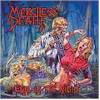 (Heavy Artillery)
(Heavy Artillery)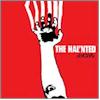 (Century Media)
(Century Media) (SPV/Steamhammer)
(SPV/Steamhammer)



